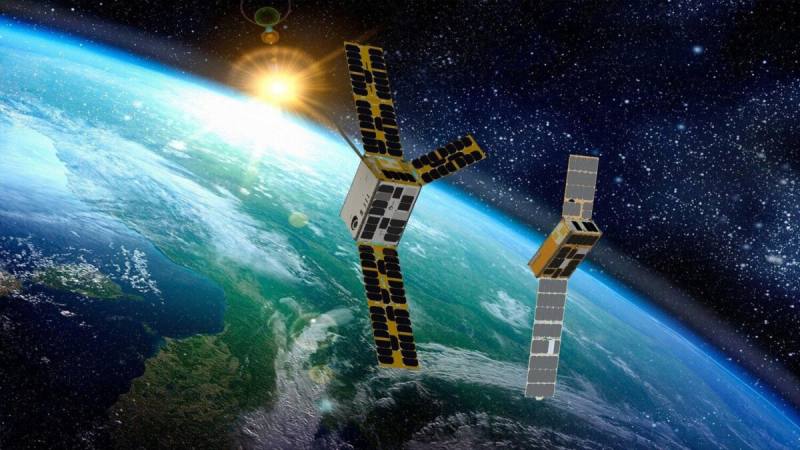
An AI Satellite Launched by a UK Startup Will Deliver Almost Real-time Photographs of Earth
- Business
- March 6, 2024
Open Cosmos, a UK-based space tech business, has successfully launched a new satellite that uses artificial intelligence (AI) to deliver views of Earth in almost real time.
Hyperspectral AI for Marine Monitoring and Emergency Response, or HAMMER, is the name of the satellite that was successfully launched into orbit on Monday by a SpaceX Falcon 9 rocket.
Its goal is to support authorities in monitoring the maritime environment and responding to natural disasters in real time by providing high-resolution imagery from across the Atlantic Ocean.
It’s no secret that artificial intelligence is essential to HAMMER’s capabilities. Earth observation satellites typically send their processed photos down to Earth, where they are left for days or even weeks.
Nevertheless, the HAMMER is equipped with an onboard image processor that uses artificial intelligence (AI) inference to process and send data to Earth in a matter of minutes. This system is known as “live Earth intelligence.”
This information is available through a smartphone app, which is said to be a first for the world. Sean Mitchell, chief commercial officer of Ubotica, an Irish business that assisted Open Cosmos in developing the AI system, said, “The two-way communication allows them to send commands back to the satellite, requesting closer observations or directing it to new areas.”
A hyperspectral camera with extremely high resolution is included with HAMMER. By taking pictures in hundreds of small spectral bands, the camera can reveal an object’s chemical composition. This makes it possible for the satellite to identify building materials or spot chemical signals, such as a possible oil spill.
“The inclusion of a hyperspectral camera and AI board ensure the most advanced imaging in the market,” said Oriol Aragon Casaled, mission manager at Open Cosmos.
Although the satellite’s initial concentration is on marine missions, its developers believe that the device’s future incarnations could find use in precision agriculture, monitoring energy infrastructure, and disaster response on land.
Open Cosmos collected a whopping $50 million towards the end of last year in order to grow the firm and build bigger satellites, possibly even entire constellations. Additionally, the business is creating the DataCosmos satellite data analytics platform.